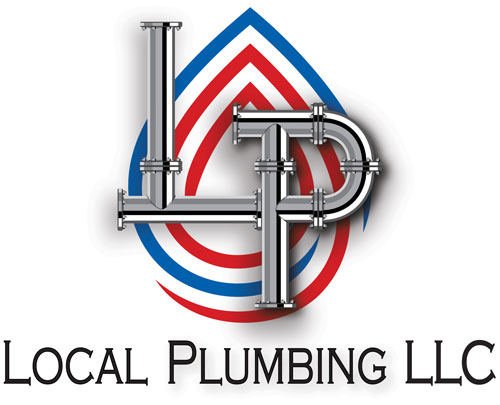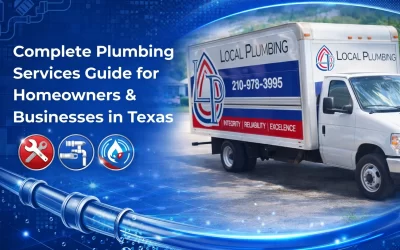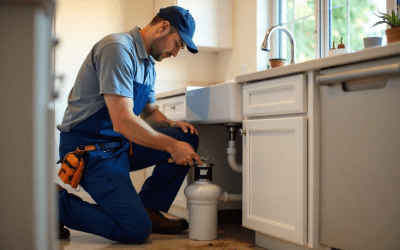With every season, the weather brings new challenges to our lifestyle, and our home’s plumbing system encounters the same. Clogging in the rainy season or frozen pipelines during winter, if your residential plumbing system is not ready to withstand the extreme climates, be ready to pay heavy repair or replacement costs afterward.
To avoid unnecessary expenses and inconveniences derived from seasonal changes, it’s better to prepare your system for the upcoming odds. This blog will introduce you to various plumbing issues you might experience as the weather changes, along with the best practices to avoid those issues.
Summer Plumbing Challenges
Water Pressure Issues
During the summer months, increased water demand for activities like watering lawns, filling pools, and outdoor washing can lead to low water pressure. This is especially true in areas where water restrictions are implemented due to drought conditions.
Pipe Expansion and Cracking
Prolonged exposure to extreme heat can cause pipes, especially older or weaker ones, to expand. When temperatures cool down, these pipes may contract which will lead to cracks that can result in leaks.
Ground Shifting
For regions that are prone to drought conditions, soil contraction can become a major issue for your plumbing system. The underground pipes will be shifted due to poor soil conditions which will create leaks or blockages.
Clogged Drains
Summer heat and moisture can contribute to rusting, corrosion, and mineral buildup on drain lines, potentially resulting in difficult-to-clear clogs. Moreover, with more people using the bathrooms and sinks during the summer, there can be an increase in food scraps, grease, oil, and other items getting caught in drainage systems, leading to clogs.
Solutions for these issues
- Schedule outdoor water activities like watering plants or irrigating the lawn during off-peak hours to minimize strain on the water supply.
- Consider installing a pressure regulator to maintain consistent water pressure.
- Regular plumbing inspections to detect fixtures for leaks that may contribute to pressure loss.
- Insulate pipes in areas exposed to heat, such as attics and crawl spaces.
- Maintain consistent soil moisture around your foundation through regular watering.
- Inspect your yard for signs of shifting soil, such as cracks or uneven surfaces.
Winter Plumbing Challenges
Frozen Pipes
As the temperature goes down, water inside pipes starts freezing, causing them to burst. The resulting water damage can be extensive when the ice thaws.
Water Heater Stress
Water heaters work overtime in winter to supply hot water, which might lead to more risks of breakdowns or inefficiency, especially if maintenance has not been performed.
Leaky Faucets
Leaky faucets often result from rubber seals contracting in cold weather, causing gaps that lead to water leakage. Over time, this can waste water and increase utility costs if left unaddressed.
Basement Flooding from Rapid Snowmelt
Basement flooding often occurs during rapid snowmelt, as excess water can overwhelm drainage systems and seep into basements. This can cause structural damage, mold growth, and costly repairs if not managed properly.
How to Prevent these Issues
- Insulate pipes in unheated areas, such as basements and garages.
- Keep cabinet doors open to allow warm air to circulate around the plumbing.
- Schedule regular maintenance and repair with a plumber in Cibolo or any other region for your water heater.
- Insulate the water heater and surrounding pipes to improve efficiency.
- Replace worn rubber seals to prevent leakage and reduce water waste.
- Ensure proper drainage and install sump pumps to mitigate basement flooding risks.
Spring and Autumn Plumbing Challenges
Gutter and Drain Blockages
Both spring and autumn bring increased debris from leaves and pollen, which can clog gutters & drains and lead to overflow and localized flooding.
Pipe Stress from Temperature Fluctuations
Fluctuating temperatures in these seasons can cause pipes to expand and contract, leading to stress on the plumbing system.
Increased Water Usage
Spring often sees a spike in outdoor water usage, which can put extra strain on plumbing systems.
Measures to Address These Issues
- Clean gutters and downspouts regularly, ideally before and after the fall season.
- Install gutter guards to minimize debris accumulation.
- Monitor your plumbing system for signs of stress, such as leaks or unusual sounds.
- Schedule seasonal plumbing inspections to catch potential issues early.
- Check irrigation systems for leaks and maintain them regularly.
- Install water-efficient fixtures to help manage water consumption.
Rainy Season
Clogged Drains
Rainwater can carry leaves, dirt, and other debris into outdoor drains, a major reason for clogging. This can result in slow drainage or water pooling around your home.
Leaky Pipes
The shifting ground caused by rain-soaked soil can place pressure on pipes that may cause cracks or leaks. If not addressed, these leaks can cause water damage and higher utility bills.
Pipes Bursting and Cracking
When rainwater has nowhere to go, it can create pressure on pipes, potentially causing them to break, especially if the pipes are old or damaged. This can result in tainted freshwater flowing into the home.
How to Deal With These Issues:
- Install drain covers to catch debris before it enters the system.
- Ensure proper yard grading to direct water flow away from drains.
- Reinforce pipe joints and replace damaged pipes promptly.
- Insulate pipes and check for vulnerabilities before rainy seasons.
- Install pressure relief valves to reduce water pressure on pipes.
- Upgrade old, weakened pipes to more durable materials to prevent bursting.
Wrapping Up
Knowing all these issues in advance gives you the time to manage them effectively before they strain your plumbing pipes as well as your finances. It’s better to get your plumbing system inspected and repaired timely to avoid all of these issues.
If you seek reliable plumbing services for your home, hire Local Plumbing LLC’s plumber in Schertz, Cibolo, and other areas in Texas.




